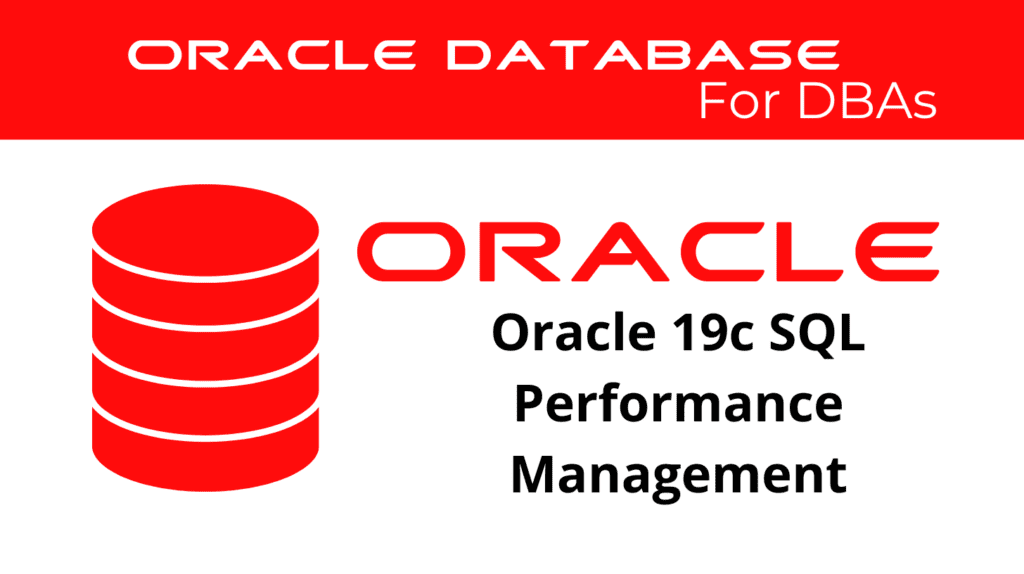
SQL Performance Management is a critical aspect of maintaining the efficiency and reliability of your database systems. In Oracle 19c, SQL Performance Management involves various techniques and tools to optimize SQL queries and ensure that the database operates at peak performance. The primary goal is to enhance SQL optimization, thereby improving overall database tuning.
SQL Optimization is the process of tuning SQL queries to run efficiently, minimizing resource consumption and execution time. This is achieved through various methods, including query rewriting, indexing, and using execution plans effectively. Database administrators (DBAs) often rely on tools and features provided by Oracle 19c to automate and facilitate this process.
Tools and Techniques for SQL Performance Management
Oracle 19c offers a suite of tools designed to assist DBAs in managing SQL performance. These tools provide insights into query performance, helping to identify and resolve inefficiencies.
SQL Tuning Advisor: This tool analyzes SQL statements and offers recommendations to improve performance. It examines the execution plans of queries, identifies bottlenecks, and suggests possible optimizations, such as adding indexes or rewriting queries.
SQL Plan Management (SPM): SPM allows DBAs to control the execution plans used by SQL queries. It captures baseline plans and ensures that the optimizer consistently uses these plans unless a better alternative is verified. This stability helps maintain performance over time, even after database upgrades or changes.
Automatic Workload Repository (AWR): AWR collects and maintains performance statistics, enabling DBAs to analyze historical data. This analysis can reveal trends and patterns that help in proactive performance tuning.
SQL Performance Analyzer (SPA): SPA enables DBAs to test the impact of changes on SQL performance. By comparing the performance of SQL queries before and after changes, SPA helps in assessing whether modifications have improved or degraded performance.
Best Practices for Database Performance Tuning
Effective database and SQL performance management tuning involves a combination of proactive and reactive strategies. Proactive tuning focuses on preventing performance issues by optimizing SQL queries and maintaining a well-structured database. Reactive tuning, on the other hand, involves identifying and resolving performance issues as they arise.
Indexing: Proper indexing is crucial for efficient query execution. DBAs should regularly review and update indexes based on query patterns and data distribution. However, excessive indexing can lead to maintenance overhead, so it’s essential to strike a balance.
Query Optimization: SQL queries should be written efficiently, avoiding unnecessary complexity and ensuring that they leverage available indexes. Using bind variables and avoiding hard-coded values can also improve performance by allowing SQL statements to share execution plans.
Database Configuration: Configuring the database parameters to match the workload is vital. This includes setting appropriate memory allocation, tuning the buffer cache, and adjusting parallel execution settings.
Regular Maintenance: Routine maintenance tasks such as gathering statistics, rebuilding indexes, and purging outdated data help maintain optimal performance. Automated tools like AWR and SPM can assist in scheduling and executing these tasks.
SQL performance management – Advanced Features in Oracle 19c
Oracle 19c introduces several advanced features that enhance SQL performance management and database tuning.
Automatic Indexing: This feature automates the process of creating and managing indexes. Oracle 19c analyzes the workload and automatically creates indexes that can improve performance. It also monitors the impact of these indexes and can drop them if they are no longer beneficial.
In-Memory Column Store: The in-memory column store significantly boosts query performance by storing data in a columnar format, allowing for faster data retrieval. This feature is particularly useful for analytical queries that involve large datasets.
Real-Time Statistics: Oracle 19c can gather statistics in real-time, providing up-to-date information for the optimizer. This ensures that execution plans are based on the most current data, leading to more accurate and efficient query execution.
Hybrid Partitioned Tables: This feature allows DBAs to manage both internal and external partitions within a single table, providing greater flexibility and performance for partitioned data.
Conclusion
SQL Performance Management in Oracle 19c is a comprehensive approach that involves using various tools and techniques to optimize SQL queries and ensure efficient database performance. By leveraging features like SQL Tuning Advisor, SQL Plan Management, and Automatic Workload Repository, DBAs can maintain and enhance the performance of their database systems. Implementing best practices for database performance tuning and utilizing advanced features introduced in Oracle 19c will further contribute to achieving optimal performance and reliability.
See more on Oracle’s website!
Be Oracle Performance Management and Tuning Certified Professional, this world is full of opportunities for qualified DBAs!





